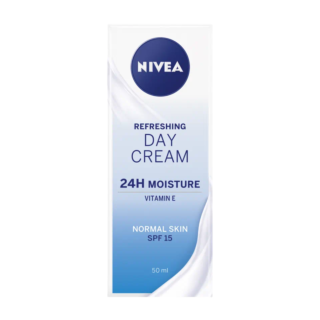Weird causes of acne

Ever woken up to find an unwelcome surprise on your face, right before a big day? Acne has a knack for making its grand entrance at the most inconvenient times, turning an otherwise good day into a battle against blemishes.
From the food you eat to the skincare products you use, you should learn about the many weird causes of acne to prevent a flare-up from happening.
This guide will tell you everything you need to know about the unexpected causes of acne…
Foods that can cause acne
Can eggs cause acne?
Eggs contain high progesterone levels, a hormone responsible for triggering acne breakouts, making them one of the foods that can cause acne.
They are also rich in biotin, which can interfere with how your body absorbs other vitamins, such as B5. Vitamin B5 is essential as it helps to regulate skin oil production.
If you eat eggs more than a few times a week, they could be causing your acne breakouts.
Does chocolate cause acne?
No direct evidence suggests that chocolate causes acne; however, not all chocolate contains the same ingredients.
If the chocolate you eat is full of sugar, dairy products and additives, then this could contribute to an acne flare-up. However, the main ingredient in chocolate is cocoa, which is rich in antioxidants, making it totally skin-friendly.
Of course, as a general rule, chocolate isn’t healthy (especially white and milk chocolate) and is more likely to break you out than clear your skin. If you want to avoid acne breakouts but still crave chocolate, opting for dark chocolate is your best option!
Does dairy cause acne?
One of the foods that can cause acne is dairy. Cows are treated with artificial hormones that could potentially throw your hormones off balance and confuse your body’s endocrine system when you consume dairy.
Dairy added to refined foods or processed sugars can disrupt your insulin levels, making your skin more prone to acne.
Whether you drink whole, semi-skimmed, or skimmed milk, it all contains dairy. If dairy is causing your breakouts, opt for a dairy-free milk alternative. Yes, that means cheese and butter, too!

Does vaping cause acne?
Vaping can dry out your skin and pores. Some chemicals in vapes can slow down your skin’s natural healing and repair process, making you more likely to experience acne.
Vapes contain substances such as diacetyl, benzene, cadmium and diethylene glycol. All these ingredients may cause skin irritation, leading to an acne flare-up, especially if you’re prone to acne.[1]
If you think vaping is the cause of your acne, you should try to stop smoking.
Can lack of sleep cause acne?
Getting a decent amount of sleep is important for your health, including your skin health. People who don’t get enough sleep each night are more likely to develop acne.
Lack of sleep can also indirectly cause acne. Not getting enough sleep can lead to disrupted hormone levels, anxiety and stress. These can all cause acne breakouts.
Also, lack of sleep can affect your immune system. Your immune system helps to protect your skin from infections, germs and microbes. If your immune system cannot defend your skin, your follicles can become blocked. It can cause small strands of hair, dead skin cells and sebum to clump together.
Acne caused by creatine
It’s one of the most popular sports supplements amongst athletes, but does creatine really cause acne?
Creatine is an amino acid found naturally in the brain and muscles. Half of the creatine in your body comes from food, and the rest is made in your liver and kidneys.
Creatine itself doesn’t directly cause acne; however, if you’re taking creatine, you may be exercising and sweating more. A sweat build-up can lead to acne-causing bacteria and dirt on the skin, potentially causing acne.
What skincare products cause acne?
Does moisturiser cause acne?
Excessively using moisturiser can lead to acne or worsen existing acne. Your skin only absorbs what it needs, meaning the rest of the product remains on your face. This excess product will clog your pores, leading to pimples and spots.
Sometimes, moisturisers with heavy ingredients may irritate your skin and worsen your acne. If you are prone to breakouts, you should opt for oil-free and non-comedogenic moisturisers to lower the risk of acne.
Can vitamin C cause acne?
Vitamin C has many advantages for most skin types. However, if you suffer from blackheads, breakouts, or oily skin, you should use vitamin C products sparingly. Vitamin C can increase oil production, leading to a flare-up.
Acne usually occurs when first-time users apply the wrong concentration or use the wrong formulation. People with skin issues or acne-prone skin should use a lower concentration and gradually increase it.[2]
Can collagen cause acne?
Collagen is a protein that provides structural support to multiple tissues,[2]including the skin. It’s not directly linked to acne. However, some collagen skincare products might contain other ingredients known to clog your pores.It’s generally safe and well-tolerated, but some people might be sensitive to collagen, which could lead to an acne breakout.

Can hyaluronic acid cause acne?
Hyaluronic acid doesn’t usually cause acne and is often recommended to treat it. However, some people will experience an acne breakout when using hyaluronic acid, possibly due to increased skin moisture.
Hyaluronic acid is non-comedogenic, meaning that it doesn’t clog your pores. If you experience a breakout from this product, it’s likely caused by an allergic reaction.
Phone calls cause acne
Believe it or not, mobile phones are very dirty! Throughout the day, makeup, oils, and environmental bacteria can accumulate on them.
Each time you take a phone call, germs are placed on the skin. The germs clog your pores and can lead to breakouts. Holding a phone to your face can also cause friction and inflammation, which can develop into acne.
Acne caused by mobile phones typically occurs on your cheeks, where the phone has been held.
How toothpaste causes acne
Some ingredients in toothpaste can cause irritation, dryness and burning. When brushing your teeth, the bacteria from your mouth can also cause acne around the mouth area.
Most toothpastes contain baking soda, hydrogen peroxide, fluoride, alcohol, essential oils, and menthol, which are known to cause acne breakouts.
You should always brush your teeth before washing your face to remove any residue left behind.

There are multiple causes of acne, some of which are less obvious. Your diet and acne might be linked. If you notice certain food groups make your acne worse, you should try to avoid them! Foods that cause acne don't need to be completely cut out of your diet, just try to reduce them.
Keeping on top of your skincare and being mindful about what you’re putting on your face can also prevent acne breakouts.
For more information about acne, visit the NHS website or our other skincare guides. Remember, if your acne is severe and affecting your life, you should always book an appointment with your GP.






